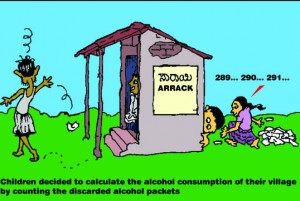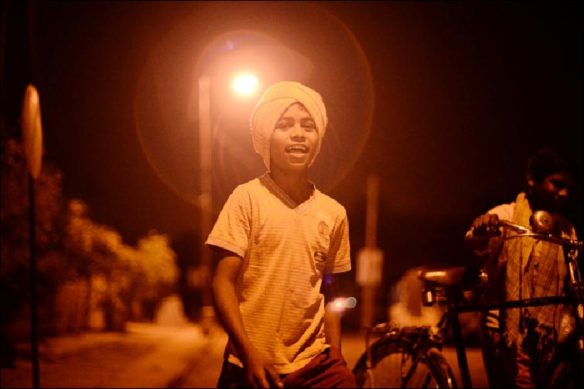Children address problems of alcoholism in Keradi Panchayat
Not all children’s information management consists of large-scale research. Children are adept at coming up with creative ways to obtain information to support their advocacy. In the village of Keradi, for example, children tried for months in 2002 to convince their village to take action on alcoholism, particularly reliance on arrack, a popular low-cost spirit. The adults of the village were unwilling to help.
Realising that they needed evidence of the scale of the problem, the children of the village spent a week collecting discarded arrack packets from around the village’s liquor shops. Using the number of packets collected as a guide, the children calculated the annual cost of arrack to the village at Rs. 11,88,000, a huge sum in a village with many poor families.
At the village’s Independence Day celebrations in August, the children presented all the information they had collected and explained the process of information collection. The Taluk Panchayat members, the headmaster, teachers, other invitees and the entire village were shocked at the revenue loss for the village from alcohol consumption the children had identified. The village immediately took action to stop the sale of alcohol through all sources other than licensed stores. The sale of arrack in vegetable and grocery stores, from cycles and under trees, etc, stopped.
But the children did not stop there. With the help of a concerned member of the Taluk Panchayat, the children issued a memorandum calling for an end to alcohol sales altogether in Keradi and by the end of the year Keradi was declared alcohol-free. The Government of Karnataka ultimately banned arrack state-wide in 2006.



